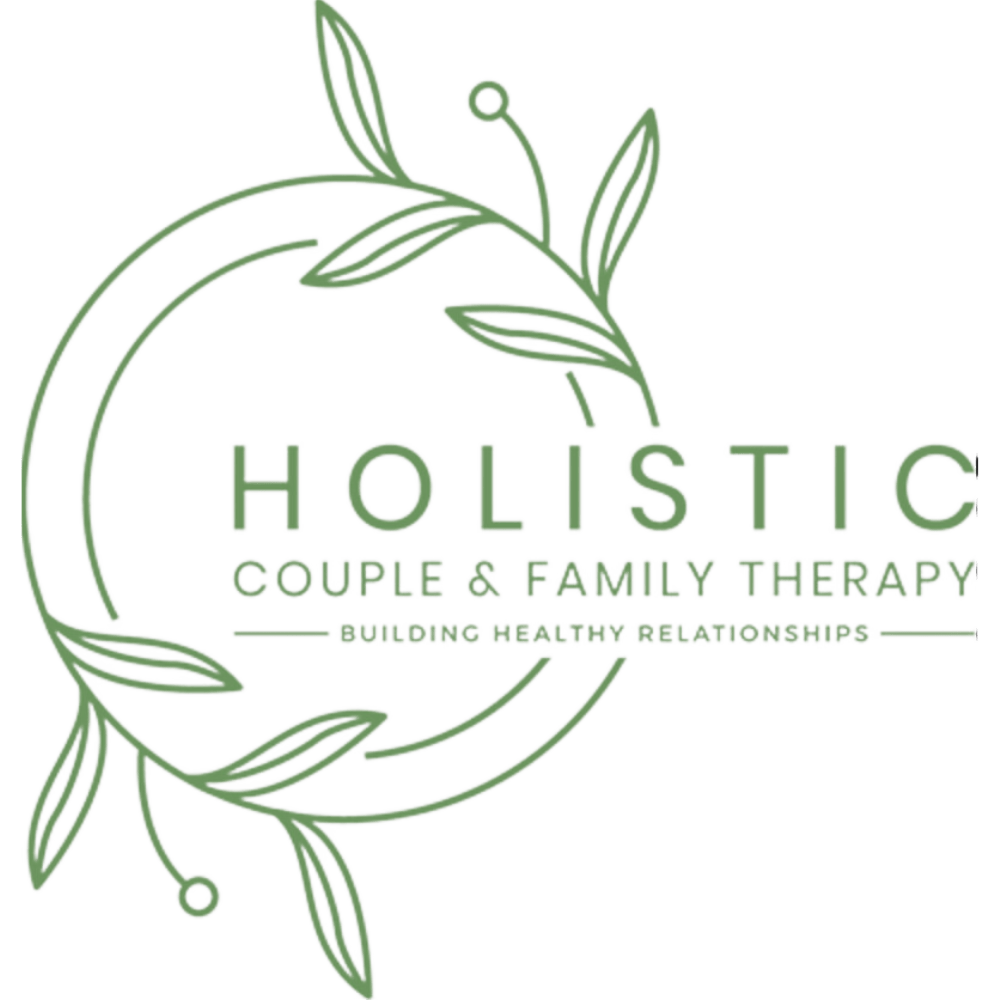Considering Non-Monogamy?
Here’s what you need to know and how we can help.
Ethical non-monogamy (“ENM”)? Polyamory? Swinging? In today’s changing world, there are so many new ways and perspectives on how to have a relationship. Our world continues to break away from the tried (but sometimes failing effort of) monogamous relationships; but as the lines get blurred, many of us get confused. What are all these terms being batted around, and what are the expectations that come with them? Don’t worry, you’re about to get some resources to understand these terms better!
What is ENM, Exactly?
Well, it’s an umbrella term under which a lot of other, more specific things fall. The addition of the word ‘ethical’ to ‘non monogamy’ suggests that we are removing infidelity as an inherent part of this, which would be considered more of an unethical non monogamy situation. Ethically non-monogamous relationships can still have hierarchies of importance (such as having a primary partner). “Kitchen table polyamory” or a sort of ‘relational anarchy’ has no hierarchies, and dovetails in many ways with the free love movement of the 60s. Swinging is another example of ENM, with usually very clear rules and roles that the couple takes on (there’s usually a specific place, agreed upon intention, it happens at the same time, the partners are faithful only to each other etc.)
The amount of words, definitions and specific wording for this lifestyle are an ever-changing, evolving and co-constructed experience. Therefore, websites such as https://www.morethantwo.com/polyglossary.html are very useful for use as a reference if there is a phrase or concept that you are not familiar with. These websites are being constantly edited and updated as we get more terms, and clearer definitions of what we expect them to mean. There is also the important aspect of understanding the differences between polyamory and an open relationship. Polyamory is a term rooted in Latin, meaning ‘many loves’. It is generally a term that suggests the idea of being less focused on relational hierarchy and more on love being infinite, wanted and readily given. An open relationship often maintains the primacy/hierarchy of the partnership but allows room for other connections (the parameters of which have to be decided by partners together and can differ from relationship to relationship.
Our social world is changing and becoming more inclusive of ENM as a valid lifestyle choice. We can see this growth happening in many ways such as the academic research on how much more often “polyamory” and “open relationships” are now searched than they were in years past, to the amount of apps popping up based around it (for example, Feeld), and the number of podcasts being recorded on the topic (see end of article for a list of some of these!).
The Benefits of Ethical Non-Monogamy
What are the motivations for an ENM and/or open relationship? What does it offer you that a more ‘traditional’ monogamous partnership does not? Is it likely to make you happier than a monogamous relationship or more unhappy? Welp, research doesn’t seem to show that the state of openness of your relationship is likely to change how happy you are within it (Rubel, 2015). The healthiness of the individuals within the relationship is shown to be the most common link in relational satisfaction. Researchers have also considered the following reasons as motivators for why an ENM relationship might appeal to you: fulfillment of needs, autonomy/individuality, desire for sexual diversity and attachment issues (Bianchi, 2022).
As one professor in my grad program once put it: if your partner LOVES chocolate cake, and you detest chocolate cake and have no interest in joining them in the activity of consuming chocolate cake, them having a chocolate cake buddy isn’t an unreasonable option. Though this may bring on issues of jealousy, thankfully, the ENM/poly world is very sensitive to this possibility. Jealousy is an EXPECTED PART of the lifestyle, and instead of being spurned and shut down, we encourage couples to discuss and lean into these feelings, without judging them in a negative way.
Additionally, the poly world has brought us the wonderful concept of compersion, which is considered the opposite of jealousy. What’s the opposite of jealousy, you may ask? It is the ability to tap into genuine joy, fulfillment and warmth for the happiness and fulfillment of someone you love, even when it doesn’t serve you. Being able to feel happy for the person you love having a good connection/experience/interaction with someone outside of you, in short. This requires a deep, safe, strong connection with your partner, and a willingness to explore difficult emotions and to rise to a much higher level of altruism and emotional depth within yourself. Truly, this can be a transformative process that creates so much space within a relationship for partners to find their own individual interests and self-growth, while remaining in relationship. You can grow beyond your limitations and expectations of what a successful relationship has to be defined as, and be the master of your own relationship rules and expectations.
This leads us into the final reason listed above, which is attachment. Some of us just don’t feel comfortable in the standard heteronormative expectations of monogamy. Those with avoidant attachment styles (which are often found to be those people who identify as male) may feel more comfortable and adaptable in some form of ENM because it allows them to balance their feelings of overwhelm and fear of being subsumed in a relationship. This could, equally, be the opposite for those with an anxious attachment style who may fear for the solidity of their relational framework. For this reason, research does seem to show that males are the ones who are engaging in ENM relationships most (as well as those in the LGBTQ+ community and people within the kink community)(Bianchi, 2022). I would like to note here that though there is some, sadly sparse, research on trans people within ENM relationships, that aspect is beyond the scope of this article. However, it is important and worth further research (maybe even its own separate piece!) As mentioned before, this means that this kind of relationship could be a vehicle of healing some of those attachment wounds, if you are up for the challenge.
Common Misperceptions of Ethical Non-Monogamy
The first, and, in my experience, greatest misconception about ethical non monogamy is the idea that it can ‘fix’ a struggling relationship, or that it will allow for you to be able to avoid cheating, or being held liable for certain behaviors. Though it seems like an open relationship can be a great Band-Aid for a relationship that’s feeling stale or turbulent, this is not the basis of this lifestyle.
This brings us to another major red flag that I often deal with as a therapist in this field: coercion. If a partner is not interested in opening up the relationship, or is being pressured into choosing to be in an ENM relationship for fear of losing the person, this is not a positive start. Again, because of the amount of communication, safety and honesty needed throughout this lifestyle, a partner who doesn’t feel heard and willing in this situation will not be set up for this to be a good experience.
Another frequent idea that comes up in the therapy room for me is that many people believe that ENM gets rid of the possibility of ‘cheating’ becoming an issue in a relationship. However, ENM doesn’t mean no rules, it means a different set of rules than what monogamous relationships might have. Any breach of those rules can still leave partners feeling that they were cheated on. An example of such an occurrence that I’ve run into has been “you need to tell me if you are seeing someone/engaging sexually with someone” being a rule in the relationship. When a partner fails to do that, this is considered a breach in the relationship and therefore, is cheating.
I’m Interested in ENM, Now What?
The premise of true ENM is around the extreme need for constant communication and input from both parties regarding their feelings, needs, boundaries and discomforts. In a lot of ways, ENM can be more work than a traditional monogamous partnership, because fewer rules can be assumed, and where there is murkiness there is room for trouble. As a therapist, I absolutely highlight the importance of taking time to sit with your partner and discuss a relationship contract. This contract should be as comprehensive as possible, and consider as many possible scenarios and variations as partners are able, so that there is a better chance of you each knowing what to expect in different scenarios, and can be mindful of what your partner would want. A relationship should, ideally, be in a VERY solid, communication-heavy, trust-filled state for ENM to work successfully. It is also normal and healthy to continue to circle back to conversations that have already been had, to ask further clarifying questions and even more specific details.
What is ethically non-monogamous (ENM)?
Ethical Non-Monogamy refers to any relationship structure where all partners consensually agree to engage in romantic or sexual relationships with more than one person—with honesty, communication, and respect at the core.
It’s not about cheating or secrecy. It’s about intention, boundaries, and mutual consent.
Is ENM the same as poly?
Not exactly.
Polyamory is a type of ENM where people can form multiple loving, committed relationships at the same time.
ENM is an umbrella term that includes:
-
Polyamory
-
Swinging
-
Open relationships
-
Relationship anarchy
-
Monogamish dynamics
So, all polyamorous relationships are ENM, but not all ENM relationships are poly.
What are the rules of non-monogamy?
There’s no universal rulebook, but healthy ENM relationships often include:
-
Radical honesty: No lying or withholding.
-
Ongoing consent: All parties should be informed and on board.
-
Clear boundaries: Every relationship defines what is or isn’t okay.
-
Communication: Regular, open, and sometimes uncomfortable conversations.
-
Emotional responsibility: Manage jealousy, insecurity, and triggers constructively.
The most successful ENM dynamics are co-created, not copied.
Are ENM and swinging the same?
No, but swinging is a form of ENM.
-
Swinging usually refers to couples engaging in sexual experiences with others, often together, and usually with less focus on romantic or emotional connections.
-
ENM includes a broader range of relationships, including emotional and romantic entanglements (like in polyamory).
Think of swinging as a lifestyle, and ENM as a relationship philosophy.

